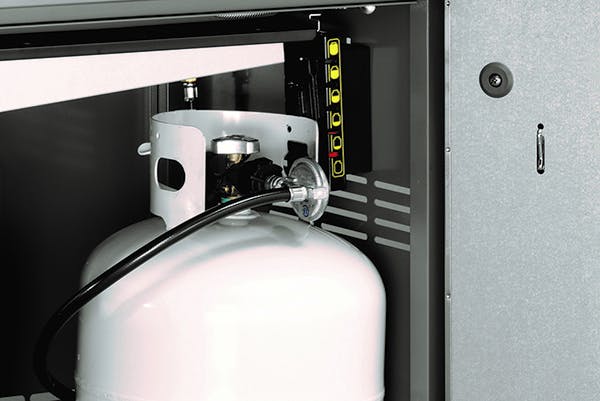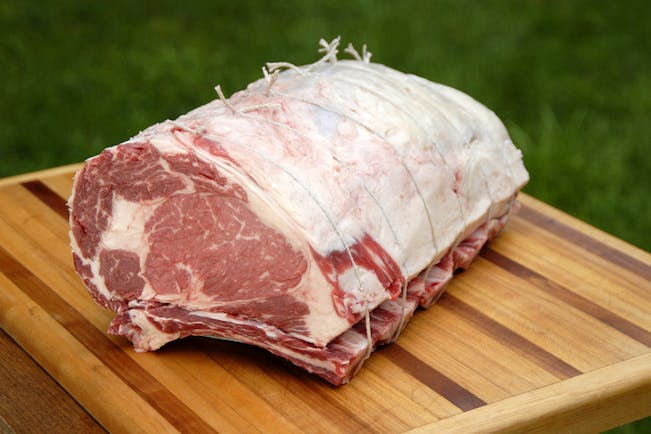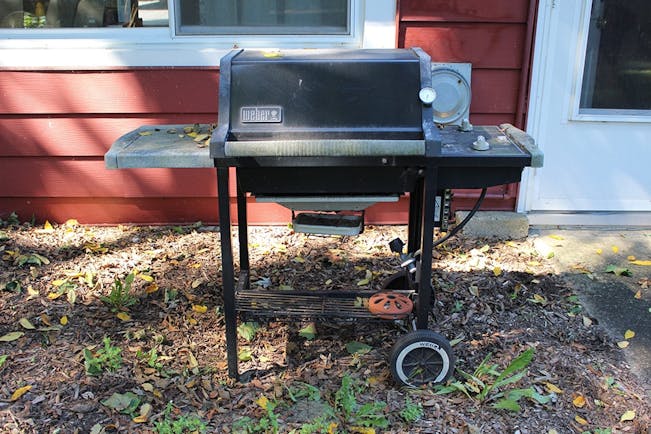LP Tank 101
LP stands for liquid propane and is the most popular type of gas grill out there. A LP gas grill was the very first grill of any kind that I had the pleasure of using. My family’s 1998 Genesis 5000 LP sparked my grilling passion that’s gone stronger with every grill.
With no dedicated gas line you can position LP grills wherever you’d like. Our larger LP gas grills including Spirit, Genesis II and Summit are all designed to run off the standard size 20 lb. LP tanks you can find at any major hardware store or gas station.

Many Weber grills come equipped with a tank scale but if you do not have one, a typical full 20 lb. LP tank lasts 18-20 hours and weighs 38-39 lbs. If you’re forgetful like me and don’t want to keep track of hours an empty 20 lb. LP tank will weigh around 18 lbs. In college my roommates and I had a grill, sadly it wasn’t a Weber, and it didn’t have a tank scale. My solution was to weigh my LP tank on our bathroom scale to get an idea how full it was. Better to weigh your LP tank than yourself after a big plate of barbecue, am I right?
Any tank 40 lbs. or larger would be considered Bulk LP. We do offer Bulk LP kits for most of our LP grills. Those can be ordered over the phone through Customer Service at 800-446-1071 and we recommend they be installed by a gas professional. For more information on Bulk LP kits please click here.
There are 2 different types of LP tanks:
- The most common is a tank that you simply exchange for a full one when it is empty. You can find these at places like gas stations and hardware stores.
- The other option is to purchase the tank and bring it to your local gas supplier whenever it needs to be filled.
Please keep in mind with exchange LP tanks you are using something many, many people could have used before you. Sometimes when people rent things and return them they do not always take the best care of them. Relate this to how some people treat rental cars.
If you suspect something is wrong with your LP tank we recommend borrowing a proven LP tank you know works from a friend, family member or neighbor to rule the LP tank out as the source of the issue. This may cost you a steak or you may owe a friend a favor, but it could save you time and stress in the long run. We recommend doing this before replacing any parts on the grill itself.
It is important to examine the LP tank gasket before hooking up your hose and regulator and using your grill. A defective LP tank gasket can lead to gas flow and gas leak issues.
Below are some examples of bad LP tanks:
Cracked or work gasket:
Misshapen gasket:
Whenever you replace or refill your LP tank we recommend doing a soapy water gas leak test. For more information on that topic please click here. Now you know everything you need to know about LP tanks so get out there and fire up your grill!
.JPG?auto=compress,format)



